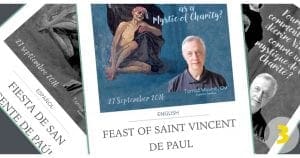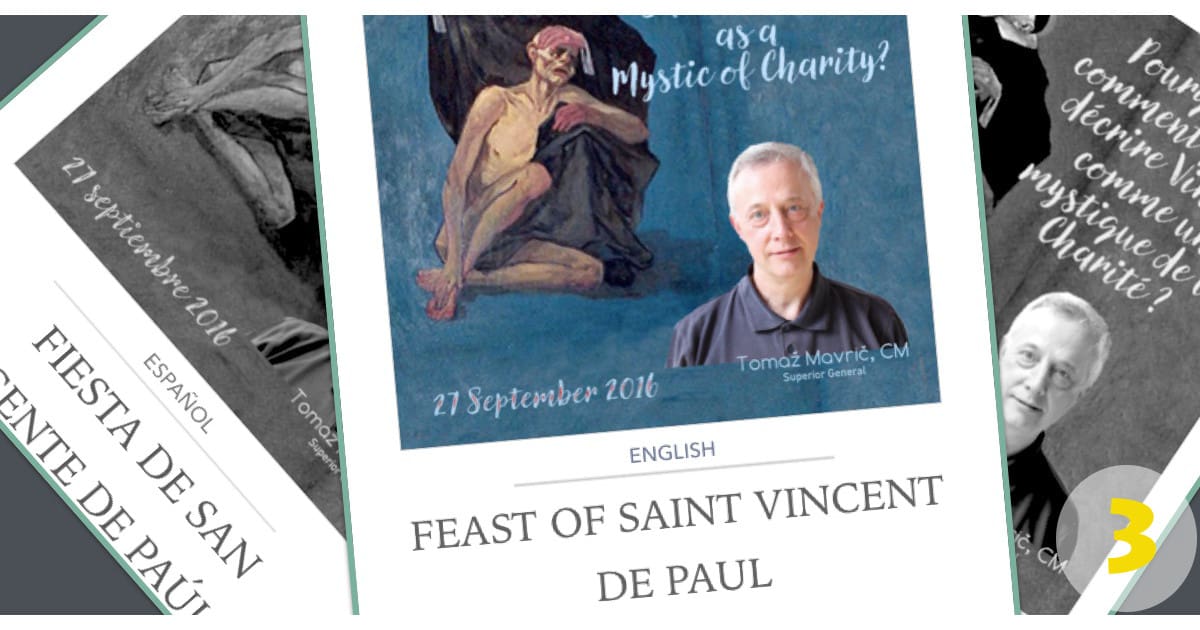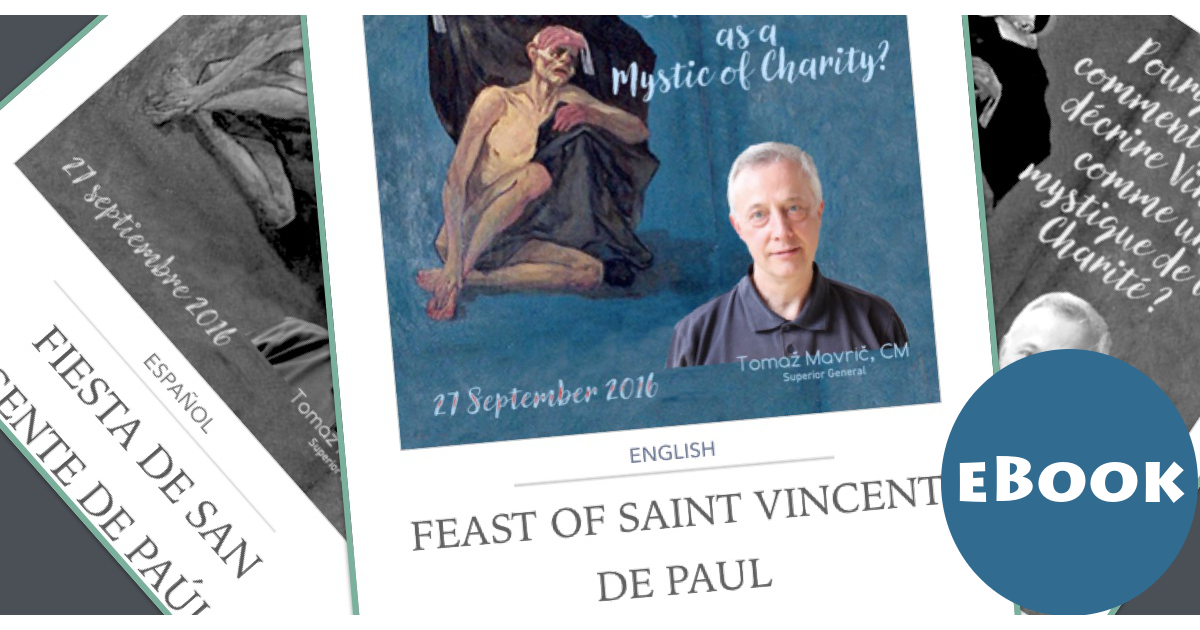Three Takes on Being a Mystic: #3
Yesterday we examined the second of “three takes” on the idea of Vincent as a “mystic of charity.” Now it’s time to look at the third. Don’t have the letter at hand? Click here for lots of versions, or click the image that follows for the recently published multi-language eBook. Got it? Okay, Take three, by Father Thomas McKenna, C.M.
McKenna says:
For this title to serve well, the word “mystic” has to be understood in its most general sense. The more popular connotation is that of a person who has more or less “direct” experience of God (visions, voices, leanings, sounds), more unmediated than not. The literature of mysticism describes experiences like ecstasies, being taken up into “a third heaven,” taken out of oneself and “sinking into” the Mystery (e.g., into the Abyss, Ocean, Ground) who is God. Its vocabulary is distinctive; e.g., progressively deeper inner mansions, active and passive contemplation, purgative/illuminative/unitive stages, passing beyond oneself, dark nights and dazzling darkness. By contrast, Vincent’s language for religious experience was quite simple and direct, and neither did he testify to these kinds of occurrences in his own life.
But the word mystic can be applied in a wider sense. That is to say, it might refer to someone who has a lived and felt contact with the sacred in life, and who responds to that encounter in service to the neighbor. Under this broader meaning, Vincent can be thought of as a mystic.
The more inclusive sense might be something like this. A mystic is one who listens to and gets caught up into God’s love for creation, and who then commits himself both to recognizing that love in the world and also bringing it there. For Vincent, this love (better, “loving”) of God revealed itself especially in people who were poor and marginalized. He came to recognize them both as privileged bearers of God’s love and as particularly deserving recipients of it. And he followed up on this by actively bringing the Good News of that love to those poor ones.
Much like the way the right lyrics can draw out the deeper beauty of a melody, the words from Isaiah that Jesus spoke in Luke chapter 4 gave a particularly resonant expression to Vincent’s experience of God. Here was Jesus announcing not only His own mission from His Father, but also His own experience of His Abba as Love for the world, especially for the downcast: “I have been sent to bring the Good News to the poor.” To paraphrase, “The fire of my Father’s love (“loving”) is burning within me, and it drives me to bring just that love to the world, most especially to the poor ones in it.” To follow the analogy, Vincent recognized these words as the lyrics to a melody that had been playing deeper and deeper within him. It was as if on hearing this text at a particular juncture in his life, Vincent said something like “Aha! That’s it! Those words catch just how I’m experiencing God’s love – and just how I want to spend my life in responding and spreading it.”
Another angle. You might describe Vincent as a “bi-spectacled” mystic. That is to say, he was (seeing) experiencing the same God through two different lenses, both at much the same time. One lens was his own prayer; the other was the person who was poor as well as the world he or she lived in. Each angle of view influenced the other, the one deepening and sharpening the perception of its opposite. Vincent “saw” (and felt) God’s love through both these perspectives at the same time and acted vigorously to respond to what he was seeing.
Reflection and challenge:
You can reflect on these questions to explore this third and final of three takes on our mystic of charity:
1. Tough question: Are you “someone who has a lived and felt contact with the sacred in life, and who responds to that encounter in service to the neighbor”? 2. Have you had an experience like McKenna describes, saying “Aha! That’s it! Those words catch just how I’m experiencing God’s love – and just how I want to spend my life in responding and spreading it.”? 3. “One lens was his own prayer; the other was the person who was poor as well as the world he or she lived in.” Are you peering into life with two lenses?
 Pray and reflect. I hope you have enjoyed this three part reflective guide to this special emphasis of Fr. Tomaž Mavrič.
Pray and reflect. I hope you have enjoyed this three part reflective guide to this special emphasis of Fr. Tomaž Mavrič.








0 Comments